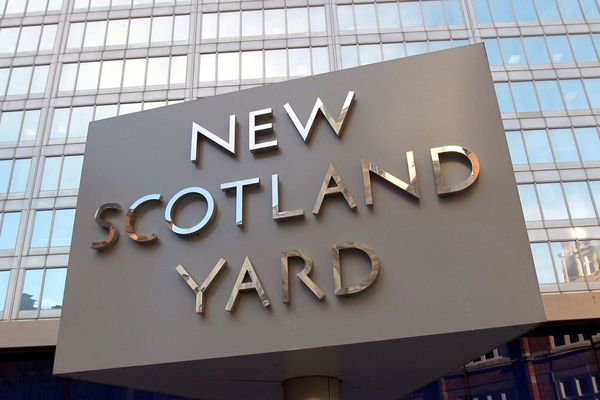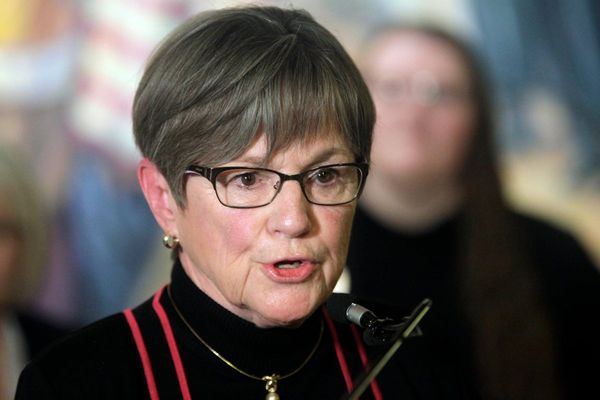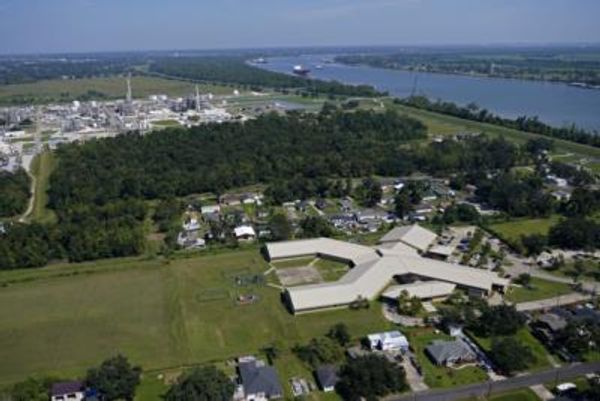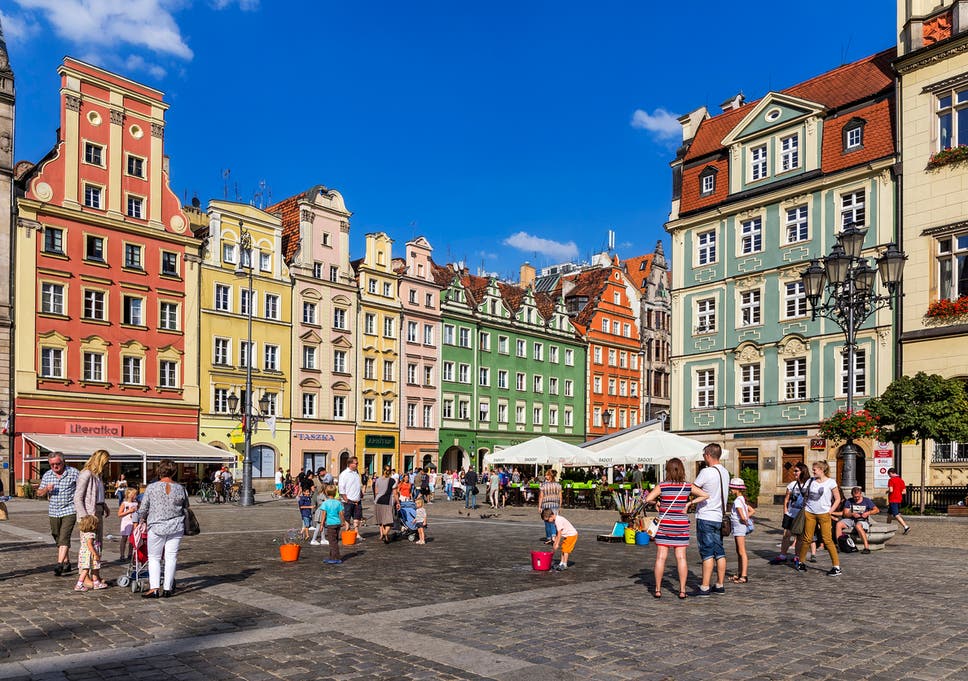
If there’s a feeling of “always the bridesmaid, never the bride” about Wroclaw (pronounced “Vrotswaffe”), there’s also a sense that this is slowly fading. Continually overshadowed by capital Warsaw and weekend break darling Krakow, the city, technically Poland’s fourth largest after Lodz (not counting its huge student population), has quietly been coming into its own. Tourism has gone up tenfold in the last decade.
High-profile gigs like being crowned 2016 European Capital of Culture and hosting the 2017 World Games (the cooler alternative to the Olympics) have attracted new investment, while the young population who flock here to study add a welcome, youthful vibe.
The place is near-perfect for a short break too: the compact, walkable Old Town is all pedestrianised cobbled squares and avenues lined with pretty, pastel-coloured buildings; a burgeoning “shot and snack” bar scene offers the cheapest – and most cheerful – of pub crawls; and there are just enough weird and wonderful attractions to keep you busy for 48 hours.
Things to do
Hunt for gnomes
Venice has canals, New York has skyscrapers – and Wroclaw has dwarfs. Well, that’s the frequently used translation, but they look more like gnomes. The city authorities commissioned the first pair in 2002 to commemorate the anti-communist Solidarity movement, and the little statues were so darn cute that soon everyone wanted in on the action. Businesses from banks to hotels commissioned bespoke ones to sit by their buildings and there are now an estimated 400+ dotted around Wroclaw. The tourist board has even created a map to help tourists catch ’em all, Pokemon style.
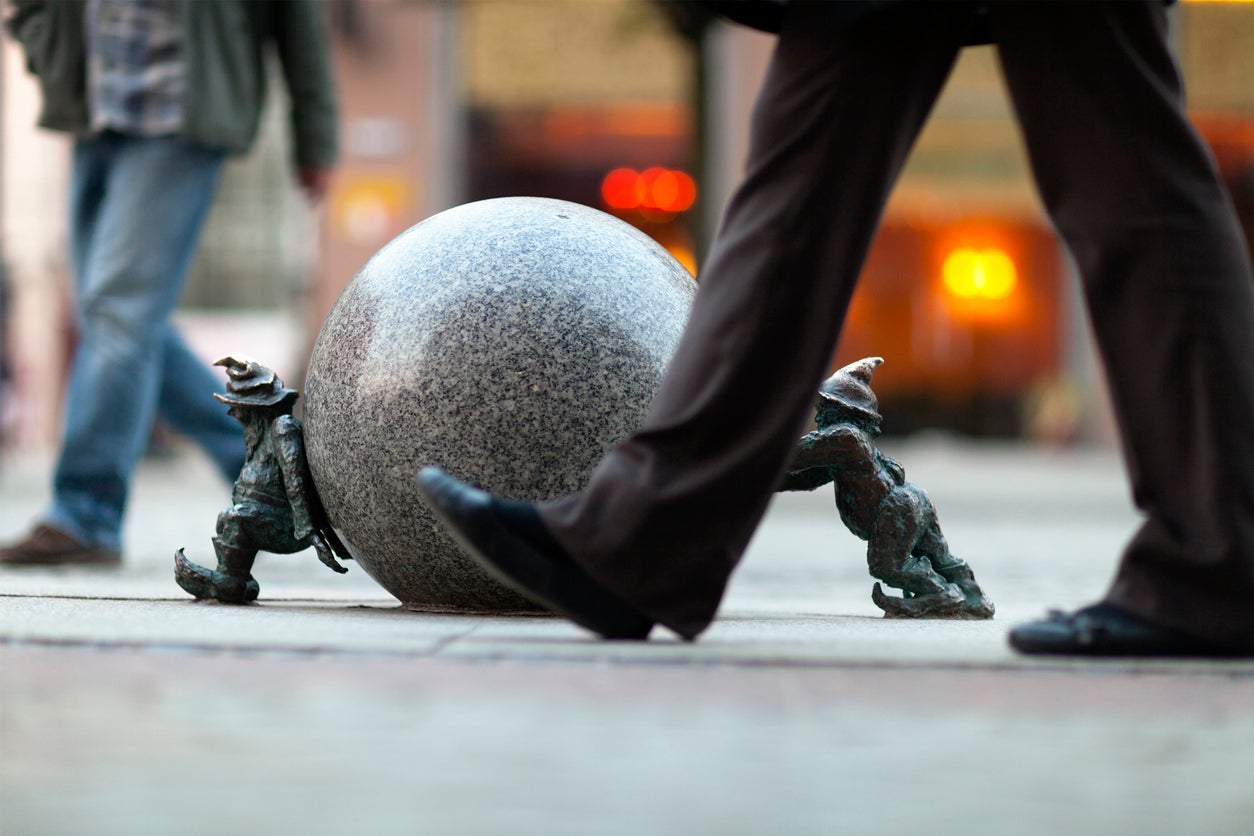
Take in a show
Part of the legacy left by Wroclaw’s stint as a European Capital of Culture is the whizzy National Forum of Music (NFM), a high-tech concert hall designed with acoustics in mind. And with tickets available from 35 PLN (£7), it would be a shame not to experience it first-hand.
Meanwhile, movie buffs can get their kicks at Nowe Horyzonty, an arthouse cinema that also hosts Poland’s biggest film festival (25 July to 4 August 2019). It plays a whole range of international independent films, with many offering English subtitles.
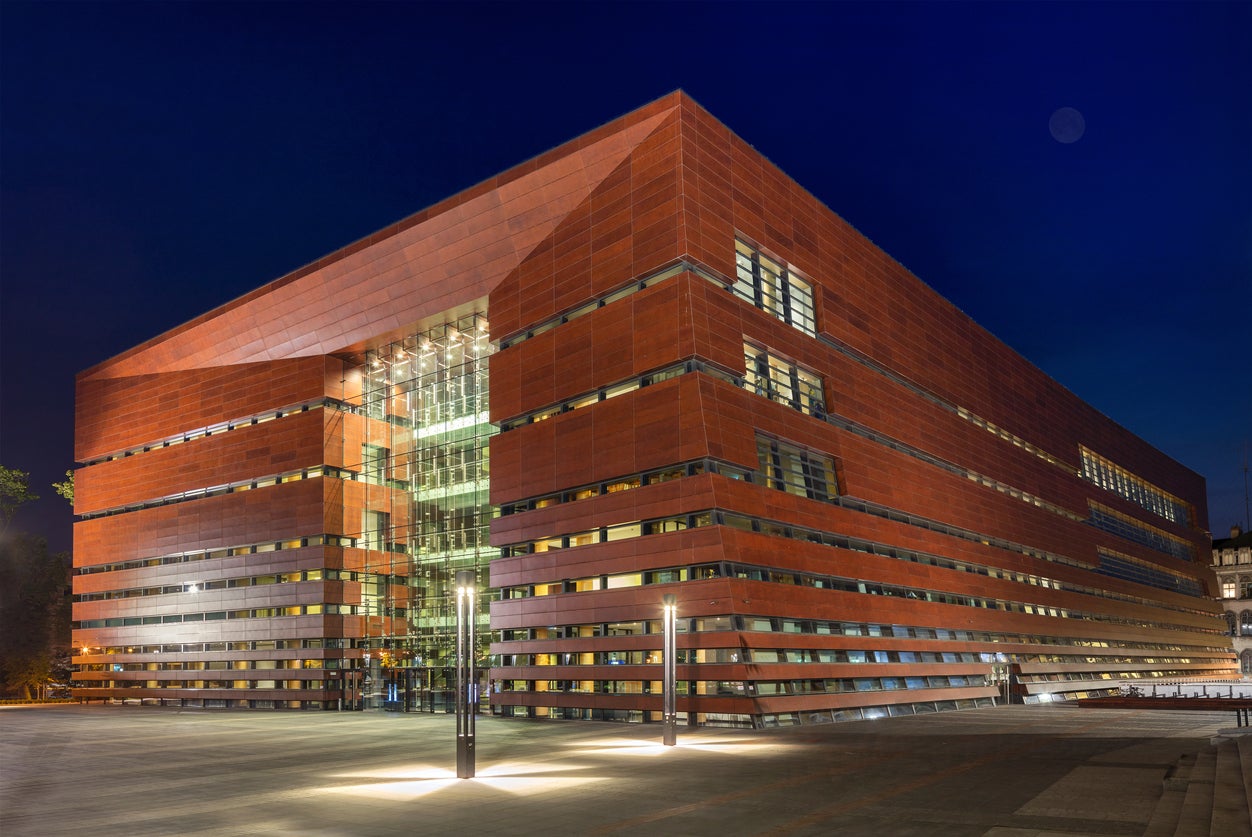
Sail away
While the description of Wroclaw as the “Venice of Poland” may seem a bit of a stretch, the Oder River definitely shapes the city’s identity – there are well over 100 bridges for a start. The best way to see them is to get on the water: Fun Boat (0048 885 502 502) offers 40-minute sightseeing tours on cute catamarans seating 14 people from April-October (25 PLN/£5pp); Szlak Gondoli hires out kayaks and rowing boats from 15 PLN (£3) an hour.
Take a walk on the wild side
Wroclaw’s Japanese Garden was created in 1913 for the World Exhibition, and it reopened again after extensive renovation in 1999. Japanese plants and buildings, from a pond with enormous carps to a tea pavilion, give it a peaceful air. Entry 4 PLN (80p).
Just over the road is Wroclaw’s zoo, the country’s oldest. It’s home to Poland’s first oceanarium, which houses more than 5,000 species of animal and fish, plus the Odrarium, a unique exhibition of Polish flora and fauna from the city’s Oder River. Entry 51 PLN (£10).
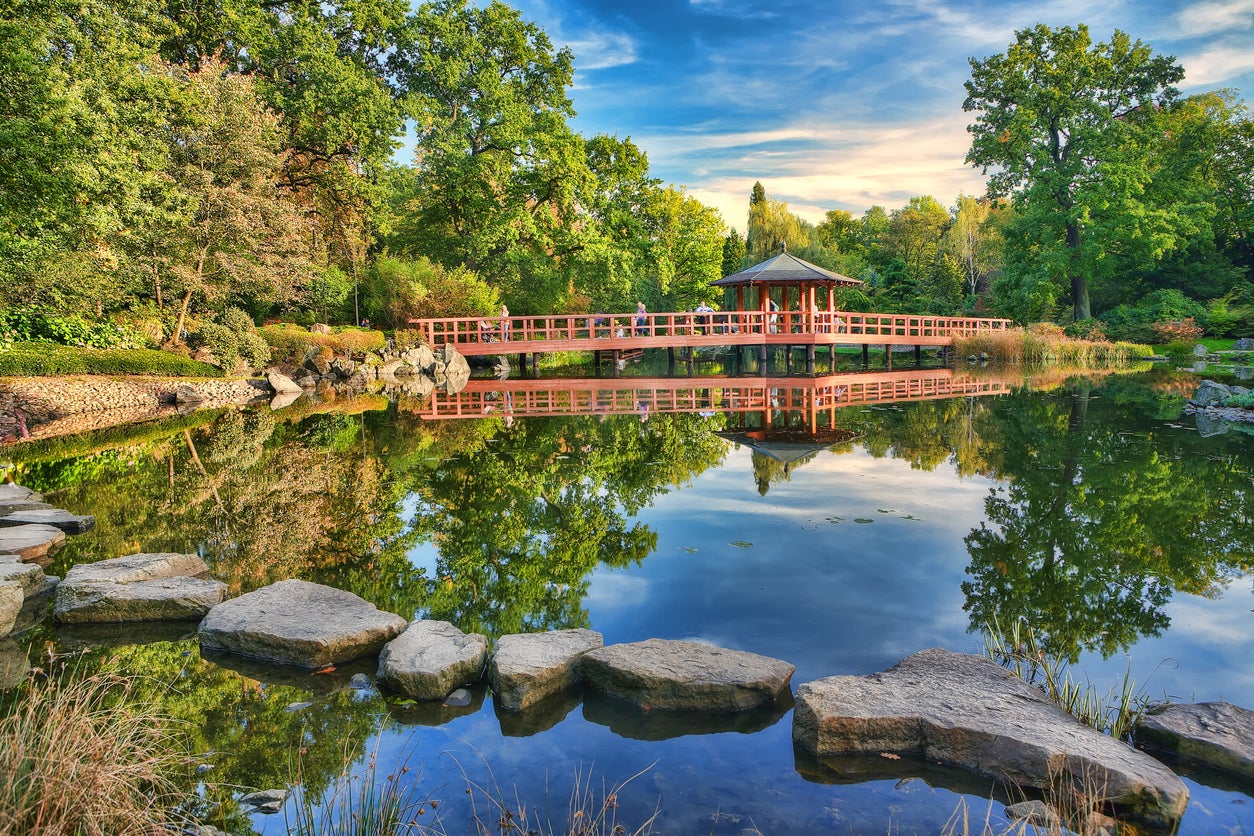
Honey, I shrunk the city
For an hour of retro fun, check out Kolejkowo, Poland’s largest (ahem) model railway. Located in a former station building, the tiny world depicts the Lower Silesia region, including an astonishingly accurate Wroclaw Old Town in miniature. It’s not all for kids either – some of the little people are getting up to quite adult activities if you look closely enough… Entry 23 PLN (£5).
Where to stay
Millennial favourite Puro has a trendy outpost just down the road from the National Forum of Music. Rooms are compact but stylish and urban, with 40-inch LED smart TV, free national and international calls, complimentary mineral water and a tablet to adjust the ambience of your room. Doubles from £65, room only.
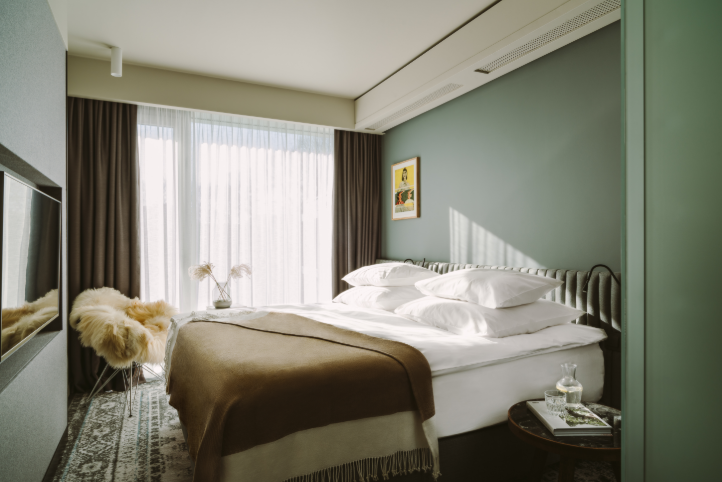
The Best Western Hotel Prima offers clean, comfortable rooms in an excellent location, under five minutes’ walk from the Old Town’s main Rynek square. Doubles from £71, B&B.
If you like your luxury with a side of history, check into the Hotel Monopol – a five-star hotel in the Old Town which counts Pablo Picasso, Marlene Dietrich and Hitler, among its illustrious/notorious past guests. Today, modern interiors are complemented by three onsite restaurants and a spa, pool and gym. Doubles from £101, room only.
Where to eat
Grab a traditional Polish doughnut at Nasza Paczkarnia (Swidnicka 24). This hole-in-the-wall style kiosk just sells the confection in various flavours – they’re mostly packed with sharp fruit jams that contrast perfectly with the extra rich, sweet dough.
Grab a seat in the outdoor area at Sukiennice 7 Restaurant, which excels in contemporary Polish cuisine. Pickled herring with cucumber and cinnamon spritzed apple chunks and calamari steak with puy lentils provide the perfect accompaniment to people watching on the Old Town’s main square.
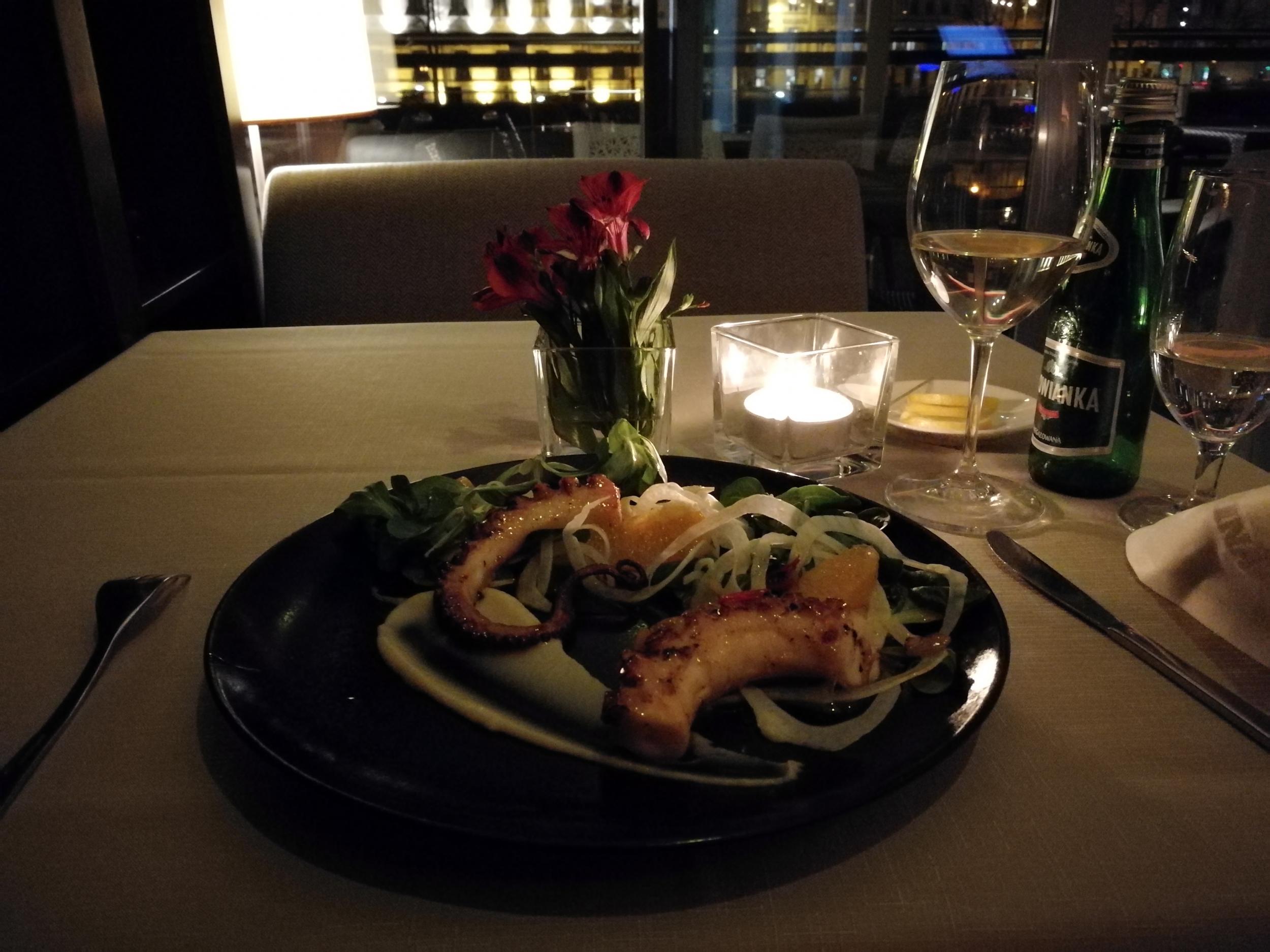
You can’t visit Poland, let alone Wroclaw, without indulging in pierogi. MOMOS specialises in these traditional dumplings: the Ruskie Z Boczkiem option, stuffed with potatoes and curd with fried onions and bacon, is particularly good.
For dinner with a view, book into Marina on the waterfront. Ignore the relentlessly bad smooth jazz playing in the background and order marinated tuna followed by octopus with orange and fennel.
Where to drink
Caffeine fixes are best found at Gniazdo, where a whole array of drip and aeropress coffees sit alongside flat whites and the ubiquitous matcha latte.
Drinks with a side of music can be found at Vertigo, the city’s premier jazz club, where cocktails are served up on a sleek wooden bar surrounded by all-red interiors.
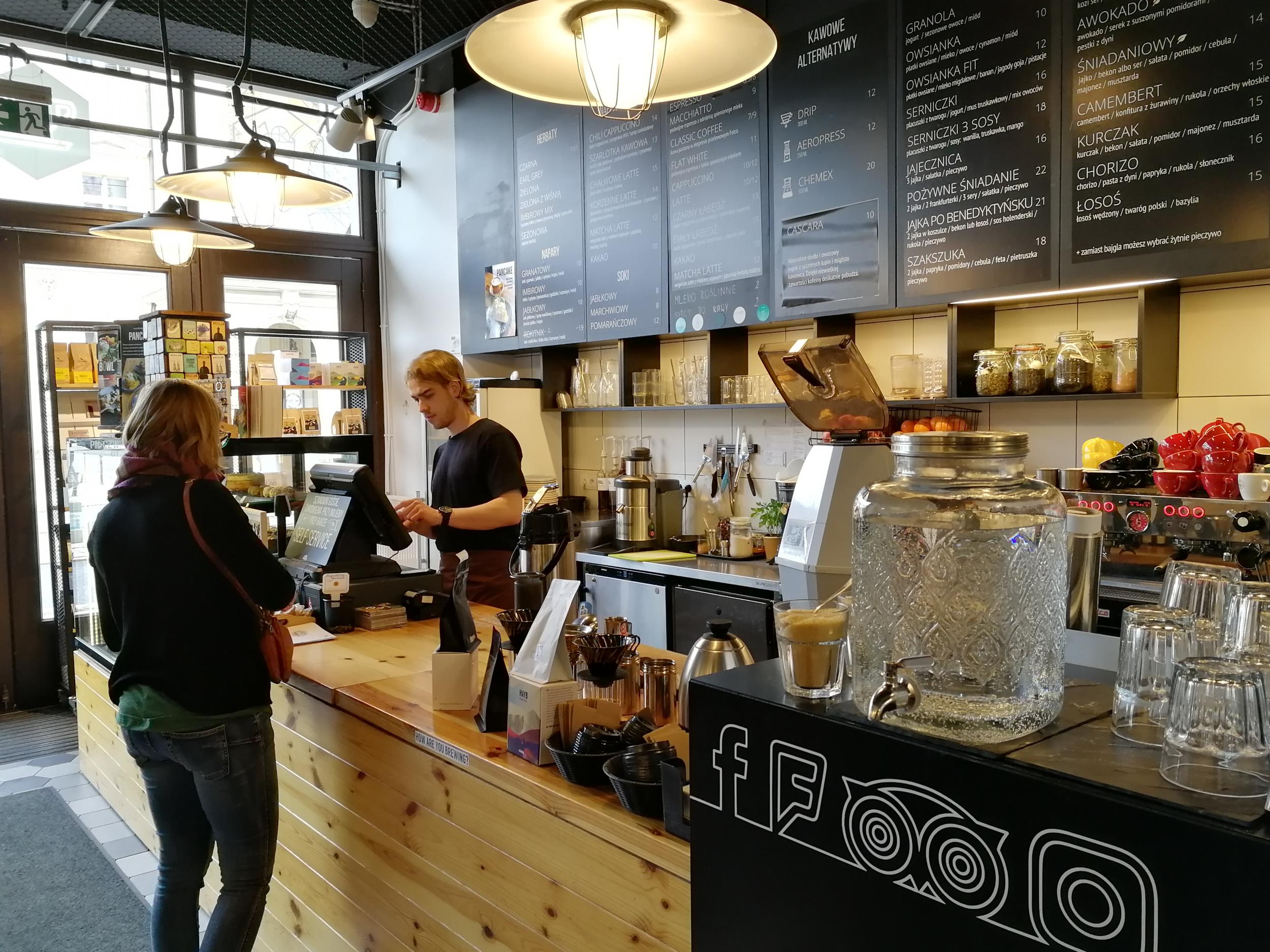
Wroclaw has a thriving “shot and snack” scene – bars offer up cheap vodka shots, beer or wine and plates of Polish tapas to soak up the alcohol, costing around £1 per drink and £2 per dish. Try Setka, which has a hip outdoor patio; Przedwojenna, with its cool mezzanine level and mismatching furniture; and Ambasada, boasting dark green-tiled walls and an elaborate bar lined with bottles of spirits divided by price.
Sink an excellent beer while watching the world go by at Spiz on the main square, where half a litre will set you back just 13 PLN (£2.60).
Where to shop
There are several sprawling malls for high-street brands, with Dominikanska Galleria being one of the biggest. Renoma was opened in 1930 and is worth a gander if only for the modernist architecture.
For bespoke gifts, head to Jatki, a tiny backstreet crammed with galleries and boutiques selling artisan Polish art and homeware.
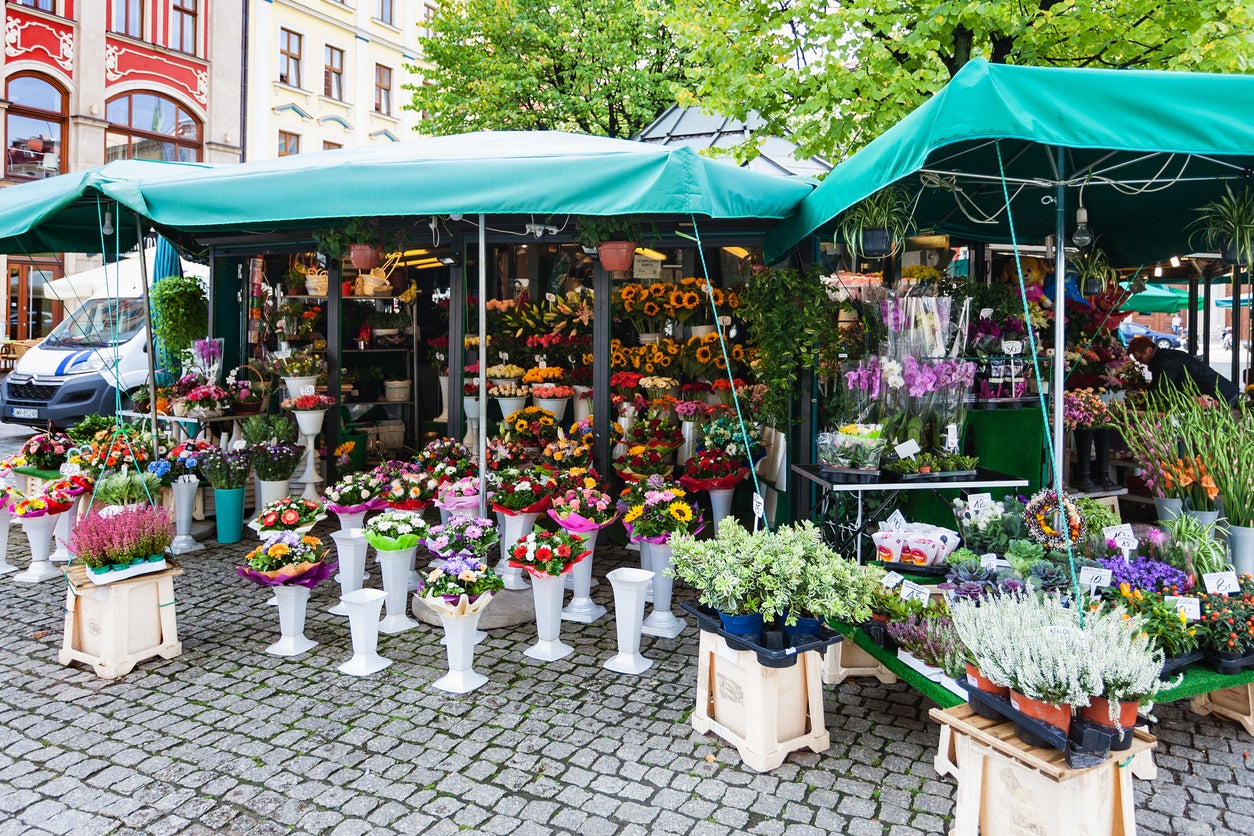
Flowers can be picked up 24 hours a day, 365 days a year, at the stalls in Solny Square.
And every year in July, the entire main square in the Old Town plays host to a huge market selling local products, while come December it’s home to one of Europe’s loveliest Christmas markets.
Architectural highlight
Wroclaw’s Ossolineum is an impressive Baroque palace on the riverbank that was rebuilt after being damaged during the Second World War. Today it houses a national archive of Polish literature and the country’s oldest publishing centre.
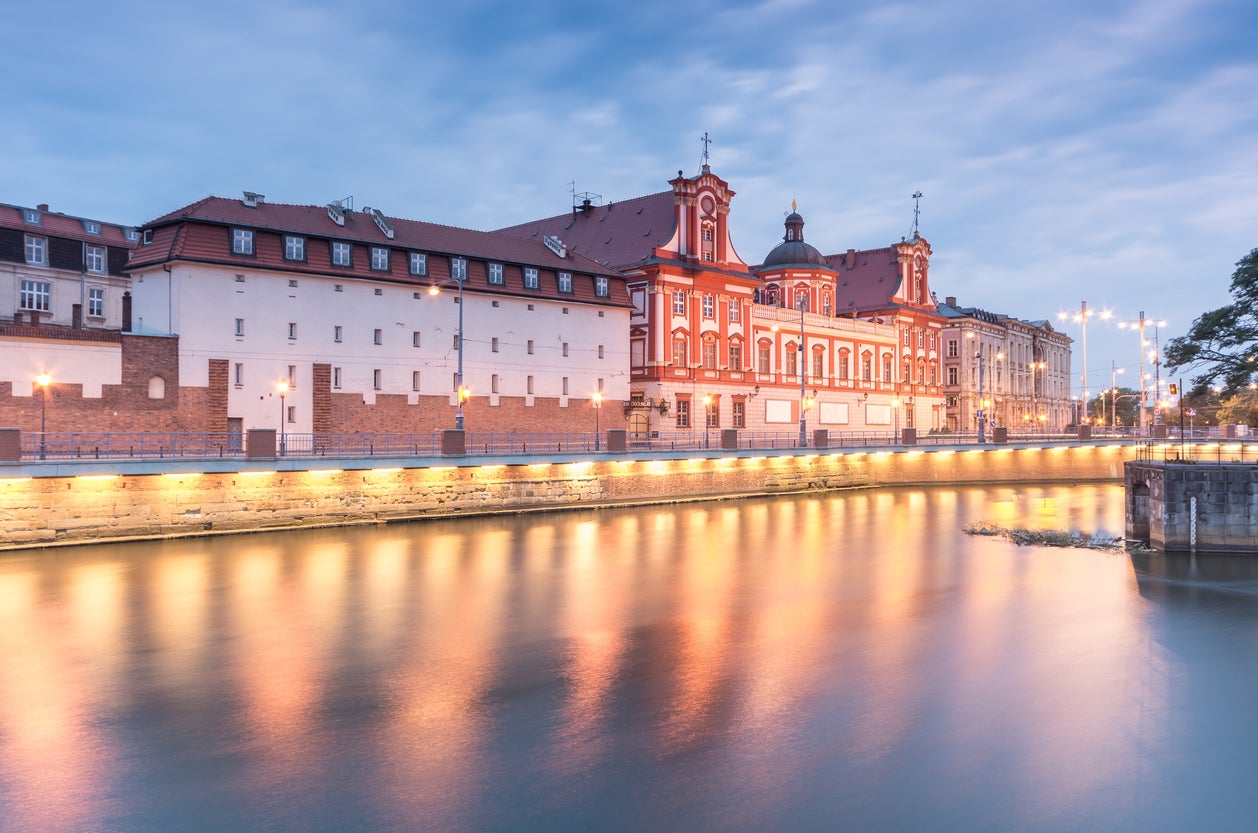
Nuts and bolts
What currency do I need?
Polish zloty.
What language do they speak?
Polish, but English is widely spoken.
Should I tip?
Tipping isn’t obligatory, but 10-15 per cent for good service in restaurants is appreciated.
What’s the time difference?
GMT+2.
Average flight time from the UK?
Ryanair and Wizz Air both fly direct from London in around two hours.
Public transport
Much of the city is walkable; there’s also an effective tram system where you can pay on board using contactless payment. Hiring a bike via cycle sharing scheme Wroclaw City Bike is also cheap and easy (10 PLN/£2 initial fee, then free for rides under 20 minutes; 40p for 20-60 minutes).
Best view
St John the Baptist Cathedral has a 60m tower you can climb (don’t worry, there’s a lift to whizz you most of the way) for panoramic city views. Entry 7 PLN (£1.40).
Insider tip
Pick up a 48-hour Wroclaw City Card for 40 PLN (£8) and enjoy free bus and tram journeys, discounts on selected attractions, hotels, restaurants and cafes, and “points” to spend on museum and gallery entry.
